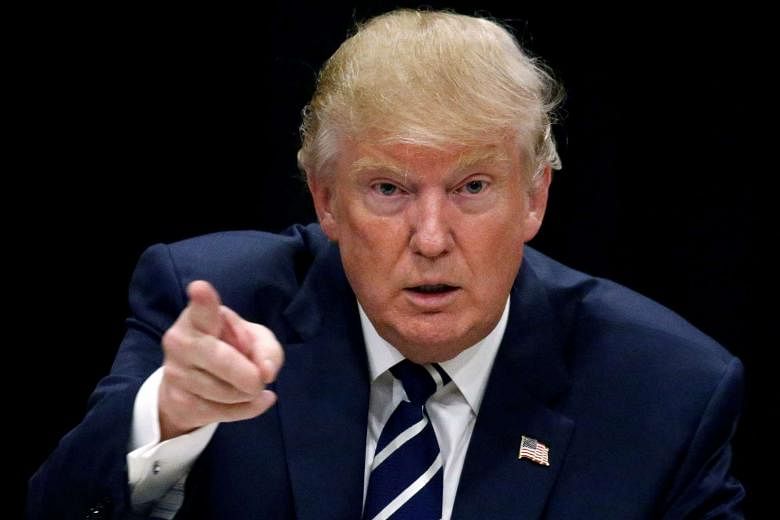US President-elect Donald Trump's campaign economic policy proposals had several components: fiscal stimulus, deregulation, trade protectionism, restrictive immigration, and possible limits on central bank independence. What are the implications of these for investors, markets and businesses?
The boom in US stock prices since the election shows that market actors expect Mr Trump to enact the massive tax cuts and spending increases he promised. These in turn will increase the budget deficit and national debt, causing inflation and interest rates to rise in an economy already at full employment with rising wages. Prior to the election result, inflationary pressures had already led to expectations of a Fed rate increase in December.
Inflation and rising interest rates channel funds into stocks and away from bonds, whose prices have predictably plunged. They also raise housing mortgage, car- and student-loan costs for ordinary Americans.
Ironically, given Mr Trump's vigorous campaign denunciations of then-presidential rival Hillary Clinton for her Wall Street ties, financial stocks are benefiting most from anticipated deregulation, as are pharmaceuticals and energy (coal), while construction and defence-related stocks have been boosted by expectations of increased federal spending on infrastructure and the military. In contrast, tech stocks, which are dependent on free trade and skilled immigration, initially took a hit.
Rising interest rates and deficit-fuelled higher GDP growth also attract funds from abroad, which strengthens the US dollar. Again, ironically, given Mr Trump's promise to his supporters to "bring back manufacturing jobs", a strong dollar hurts exports, which account for 65 per cent of US manufacturing, and favours imports, thus worsening the US trade deficit which was such a prominent feature of his campaign rhetoric.
Already, the euro, Japanese yen, Chinese yuan, and emerging market currencies have weakened significantly against the dollar, presaging a tide of import competition for US manufacturers, who might be tempted to leverage the strong dollar by investing abroad to benefit from lower costs.
But Mr Trump also said he would punish US companies (and thus their shareholders) for moving production offshore, "forcing them to return" by imposing large tariffs on imports, particularly from Mexico and China. This would penalise US consumers through higher prices, and wreak havoc with manufacturers' supply chains that have been globalised to take advantage of market-based locational differences in comparative and competitive advantage.
Besides constituting unprecedented government intervention in private sector businesses' corporate strategies, preventing and punishing offshoring would not increase US manufacturing employment. The National Association of Manufacturers estimates that two million of the 3.5 million manufacturing jobs expected to be created in the United States in the next decade will go unfilled, due to a skills gap.
Trade and investment restrictions would also invite retaliation from trade partners, with the resulting "trade war" reducing not just US exports, but also economic growth and employment, as all previous bouts of protectionism have done. With the US already in an unprecedentedly long economic recovery - seven years - and thus "overdue" for a "correction", a recession might result.
This would be much more likely if Mr Trump follows through on his campaign vow to deport 11 million undocumented immigrant workers, drastically shrinking the US labour force and raising costs especially for small businesses, which would risk going under. In the longer term, any restrictions on high-skilled immigration would slow the growth of competitive, technologically advanced sectors, and increase the incentive for US tech multinationals to set up operations abroad to access foreign talent.
Mr Trump's plan to reduce high corporate tax rates (as President Barack Obama and Mrs Clinton also planned to do) should encourage some US corporate savings held offshore to return. But there is no assurance that they would be invested productively rather than distributed to shareholders, and this could also contribute to inflation.
Because the economic ramifications of Mr Trump's campaign policy proposals are so dire, market actors and the business community seem to be assuming that he will not follow through on his promises. They see hope in his apparently drawing closer to the Republican establishment in Washington against whom he and his supporters previously railed at as loathed "insiders" in a "corrupt government machine" of predatory "global elites".
The mainstream Republican economic policy orthodoxy of free trade, liberal immigration and balanced budgets (including threats to the expensive but hugely popular entitlement programmes of Social Security and Medicare) were not only antithetical to Mr Trump's platform and his supporters' wishes, but also deemed responsible for their perceived economic and social marginalisation.
Thus the most hopeful sign to come out of the election's aftermath is the assumption that Mr Trump will not do what he said he would. This risks alienating his riled-up base, who said they supported him because he was "authentic" and "means what he says". But if the election was not about economics - as increasingly seems to be the case - then perhaps they will forgive him for repudiating the policies he advocated on the stump.
- The writer, an economist, is professor of strategy at the Stephen M. Ross School of Business, University of Michigan.

